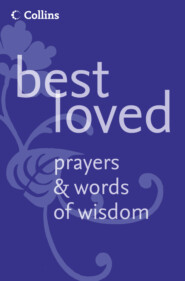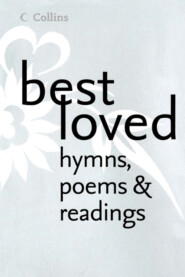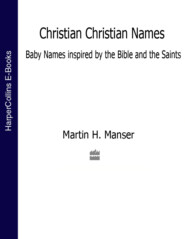По всем вопросам обращайтесь на: info@litportal.ru
(©) 2003-2024.
✖
Best Loved Christmas Carols, Readings and Poetry
Автор
Год написания книги
2018
Настройки чтения
Размер шрифта
Высота строк
Поля
This most tremendous tale of all,
Seen in a stained-glass window’s hue,
A Baby in an ox’s stall?
The Maker of the stars and sea
Become a Child on earth for me?
And is it true? For if it is,
No loving fingers tying strings
Around those tissued fripperies,
The sweet and silly Christmas things,
Bath salts and inexpensive scent
And hideous tie so kindly meant,
No love that in a family dwells,
No carolling in frosty air,
Nor all the steeple-shaking bells
Can with this single Truth compare –
That God was Man in Palestine
And lives to-day in Bread and Wine.
John Betjeman (1906–84)
Reproduced by permission of John Murray Publishers
Christmas bells (#ulink_03a0298d-2717-5a98-b2a0-2727baa40964)
In this poem, the festivities of Christmas Day are contrasted with the grim realities of life. Longfellow penned this plea for peace on Christmas Day 1863, at a time when America was convulsed by civil war, just six months after the Battle of Gettysburg.
I heard the bells on Christmas Day (#ulink_6506492d-c6bf-562c-9178-aa06290343a6)
Their old, familiar carols play,
And wild and sweet
The words repeat
Of peace on earth, good will to men!
I thought how, as the day had come,
The belfries of all Christendom
Had rolled along
The unbroken song
Of peace on earth, good will to men!
And in despair I bowed my head:
‘There is no peace on earth,’ I said,
‘For hate is strong
And mocks the song
Of peace on earth, good will to men!’
Then pealed the bells more loud and deep:
‘God is not dead; nor doth he sleep!
The wrong shall fail,
The right prevail,
With peace on earth, good will to men!’
Henry Wadsworth Longfellow (1824–84)
A Christmas carol (#ulink_b7f1d8cc-1a90-50b1-9f60-32ecf370b8af)
This is a poem of simple adoration that often appears in anthologies of best-loved Christmas verse.
The Christ-child lay on Mary’s lap, (#ulink_fd85d9c3-0c3f-5d44-9d3c-06c66b6e991b)
His hair was like a light.
(O weary, weary were the world,
But here is all aright.)
The Christ-child lay on Mary’s breast,
His hair was like a star.












